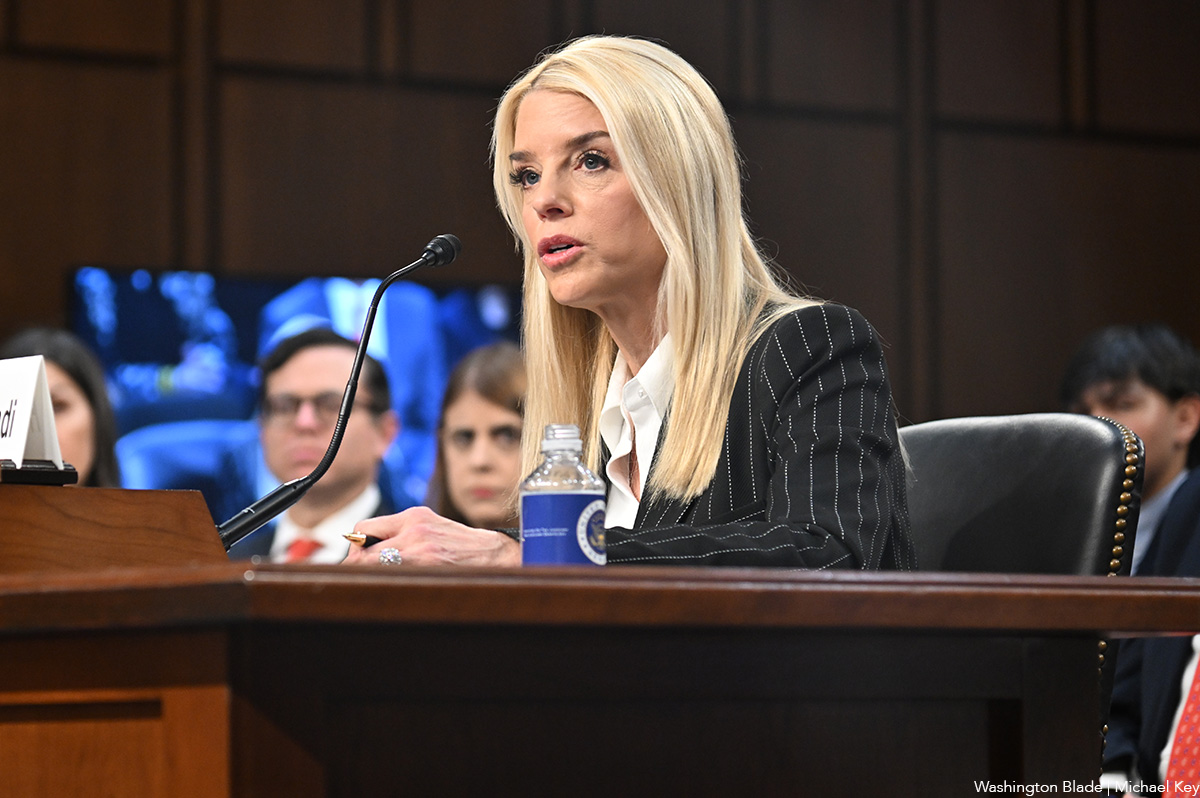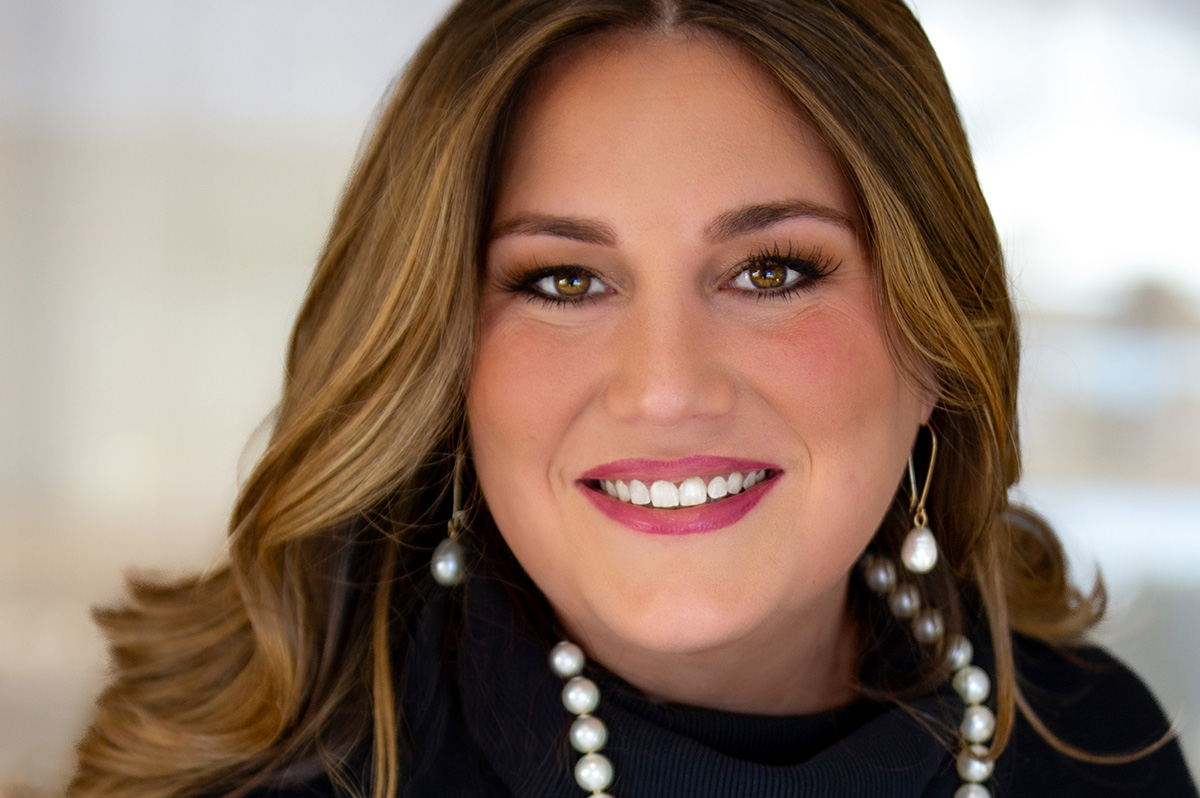U.S. Federal Courts
Judge’s nationwide abortion pill ban ‘could open the floodgates’
Medicines for gay, bi, and trans Americans could be next

White House Press Secretary Karine Jean-Pierre told reporters on Monday that last week’s decision by a Texas court to ban the nationwide sale and distribution of the abortion pill mifepristone “could open the floodgates for other medications to be targeted and denied to people who need them.”
Following that ruling by Judge Matthew Kacsmaryk of the U.S. District Court for the Northern District of Texas, American Medical Association President Jack Resneck raised similar concerns in a statement warning that “upending longstanding drug regulatory decisions by the U.S. Food and Drug Administration (FDA)” would position “other drugs at risk of being subject to similar efforts.”
“This ruling makes every medication on the market a potential target for political grandstanding,” Whitman-Walker Institute Executive Director Kellan Baker told the Washington Blade by email.
“Now that Judge Kacsmaryk has decided that he knows more about medical evidence than the FDA, the entire foundation of the FDA’s essential role in safeguarding access to medications is now subject to political attack,” Baker said.
“You’re not talking about just mifepristone,” U.S. Department of Health and Human Services Secretary Xavier Becerra said during an appearance on CNN’s “State of the Union” Sunday. “You’re talking about every kind of drug. You’re talking about our vaccines. You’re talking about insulin. You’re talking about the new Alzheimer’s drugs that may come on.”
Likewise, in an interview on Pod Save America that aired Tuesday, law professor Leah Litman agreed drugs like HIV medications, along with vaccines like those targeting HPV and COVID, or birth control pills, could be next.
Medicines for trans youth and adults, in some cases, have been targeted with legislation passed by conservative states to restrict access to guideline directed medically necessary interventions for the treatment of gender dysphoria.
And last year, another Texas court ruled that employers can deny health coverage for PrEP, a medication used to prevent the transmission of HIV.
More litigation lies ahead, along with more uncertainty
Ruling in Alliance for Hippocratic Medicine v. FDA, Kacsmaryk had issued a stay on the Food and Drug Administration’s conclusion that mifepristone is safe and effective, a finding the agency reached in 2000 that has since been buttressed by more than two decades of clinical evidence.
It was roundly denounced as unscientific, the product of the judge’s longstanding and well documented ideological opposition to abortion.
The Biden administration was prepared for Kacsmaryk’s decision, Jean-Pierre said: Attorney General Merrick Garland immediately pledged the Justice Department to appeal and seek a stay (of Kacsmaryk’s ruling) pending the outcome of additional litigation. And then on Monday the Department asked the U.S. Court of Appeals for the Fifth Circuit to halt implementation of the ruling.
Other powerful legal actors had also been on notice. On Monday, New York Attorney General Letitia James led a coalition of state attorneys general in challenging Kacsmaryk’s ruling with an amici brief filed to the 5th Circuit.
Casting additional uncertainty into the mix was a separate ruling, just hours after Kacsmaryk’s, by Judge Thomas Rice of the U.S. District Court for the Eastern District of Washington, who ordered the FDA to make no changes to the availability of mifepristone.
The case in Washington was brought by attorneys general from 17 states and the District of Columbia in anticipation of Kacsmaryk’s ruling, and the split decision means the matter is likely to be settled by the U.S. Supreme Court.
Some legal observers have speculated that the Biden administration may be pushing for this outcome, hedging that even with its 6-3 conservative supermajority the justices are likely to reject Kacsmaryk’s analysis of the relevant facts on substantive or procedural grounds.
Still, and notwithstanding the fate of other medications or vaccines in the hands of Kacsmaryk or his ideological allies on the federal bench, the Texas court’s ruling raises other major questions.
For example, can a federal judge circumvent the congressionally ordained power of America’s federal administrative agencies? If so, under which circumstances? How about the practice of forum shopping, by which litigants deliberately move to have their cases adjudicated by judges they expect will be most sympathetic? And what will all of this uncertainty mean for the global biopharmaceutical industry and the future of drug discovery in America?
One solution that was proposed by at least two Democratic members of Congress, Rep Alexandria Ocasio-Cortez (N.Y.) and Sen. Ron Wyden (Ore.): the Biden administration should simply ignore Kacsmaryk’s ruling.
“I believe the Food and Drug Administration has the authority to ignore this ruling, which is why I’m again calling on President Biden and the FDA to do just that,” Wyden said in a statement Friday.
“If they don’t,” warned the senator, “the consequences of banning the most common method of abortion in every single state will be devastating.”
“The courts rely on the legitimacy of their rulings, and what they are currently doing is engaging in an unprecedented erosion of their legitimacy,” Ocasio-Cortez told Anderson Cooper during an interview on CNN Friday.
On Twitter, the congresswoman addressed the backlash against her comments, explaining that Republicans have also ignored court orders in cases where they felt they were unlawful.
GOP are losing their mind over this, but there’s precedent – including their own.
— Alexandria Ocasio-Cortez (@AOC) April 9, 2023
Courts ordered Trump to fully restore DACA. They ignored it w/ Republican support.
GOP operate in complete contempt for the law until they’re in a position to shred Constitutional & human rights. https://t.co/kfxsdF5eKG
On Monday, the White House circulated an open industry letter signed by more than 200 pharmaceutical industry executives, which echoed criticisms of Kacsmaryk’s ruling that noted his lack of formal education or training in science or medicine.
The executives’ letter also argued the decision presents systemic risks to the drug discovery pipeline.
“As an industry we count on the FDA’s autonomy and authority to bring new medicines to patients under a reliable regulatory process for drug evaluation and approval,” the group wrote.
“Adding regulatory uncertainty to the already inherently risky work of discovering and developing new medicines will likely have the effect of reducing incentives for investment, endangering the innovation that characterizes our industry.”
U.S. Federal Courts
Federal judge in Md. rules against White House passport policy
Lambda Legal represents transgender, nonbinary people in lawsuit

A federal judge in Maryland on Tuesday ruled in favor of six transgender people who are challenging the Trump-Vance administration’s passport policy.
President Donald Trump once he took office signed an executive order that banned the State Department from issuing passports with “X” gender markers. A memo the Washington Blade obtained directed State Department personnel to “suspend any application where the applicant is seeking to change their sex marker from that defined in the executive order
pending further guidance.”
The Trump-Vance administration only recognizes two genders: male and female.
The lawsuit that Lambda Legal filed in U.S. District Court for the District of Maryland in Baltimore in April alleges the policy “has caused and is causing grave and immediate harm to transgender people like plaintiffs, in violation of their constitutional rights to equal protection.”
Seven trans people — Zander Schlacter, Jill Tran, Lia Hepler-Mackey, David Doe, Robert Roe, Peter Poe, and Kris Koe — filed the lawsuit.
Roe is a U.S. Foreign Service Officer who currently lives in Europe. Lambda Legal, who represents him and the six other plaintiffs, notes Chief Judge George L. Russell III dismissed Roe’s case because the State Department has yet to deny him “an accurate passport.”
“Like every other court that has considered this executive order, the court finds its stated purpose does not serve an important governmental interest that is exceedingly persuasive; further, the discriminatory means employed are not substantially related to the achievement of those objectives,” said Russell in his ruling.
Lambda Legal Counsel Carl Charles described Russell’s decision as “a crucial victory for our clients and transgender people nationwide who have been trapped by this administration’s cruel and discriminatory policy.”
“The court recognized that forcing inaccurate identity documents on transgender Americans causes immediate and irreparable harm,” said Charles in a press release. “Our clients can now travel with dignity and safety while we continue fighting to overturn this discriminatory policy entirely.”
The American Civil Liberties Union earlier this year filed a separate lawsuit against the passport directive on behalf of seven trans and nonbinary people.
A federal judge in Boston in April issued a preliminary junction against it. A three-judge panel on the 1st U.S. Circuit Court of Appeals last week ruled against the Trump-Vance administration’s motion to delay the move.
U.S. Federal Courts
AGs sue White House over push to restrict gender-affirming care in blue states
14 states, DC joined the lawsuit filed Friday

A group of 15 Democratic attorneys general and Pennsylvania Gov. Josh Shapiro (D) have accused the Trump-Vance administration of unlawfully pressuring health providers to withhold access to gender-affirming medicine for minors in places where these treatments remain legal.
In a complaint filed in the U.S. District Court for the District of Massachusetts on Friday, the attorneys general outlined multiple ways in which, they claim, the administration has overstepped its authority to restrict care that is protected under state law, such as by threatening providers with meritless lawsuits and federal investigations.
On the first day of his second term, President Donald Trump directed the Justice Department to pursue enforcement actions to proscribe medically necessary gender related interventions, which were characterized in his executive order as “chemical and surgical mutilation.”
Thereafter, the DOJ has issued subpoenas, demanded private patient data, and suggested that criminal charges might be coming — actions that have no legal basis, and instead constitute efforts to strong-arm Democratic states into alignment with the administration’s position on gender-affirming care for minors, according to the complaint.
As a result of these pressures, the attorneys general argue, providers have reduced or eliminated services while patients have reported cancelled appointments and uncertainty over whether they can continue receiving treatment.
Their lawsuit asks the court to block the administration’s actions and halt the enforcement of the executive order along with another that prohibits the federal government from recognizing transgender people or acknowledging that gender identity does not always correspond with one’s sex at birth.
The 15 attorneys general are from Massachusetts, California, New York, Connecticut, Illinois, Delaware, D.C., Hawaii, Maine, Maryland, Michigan, Nevada, New Jersey, New Mexico, Rhode Island, and Wisconsin.
U.S. Federal Courts
Meeting the moment: Democracy Forward takes prominent role in fighting Trump regime
Group is involved in cases including some before the Supreme Court that concern LGBTQ rights

Just weeks before the U.S. Supreme Court is expected to decide a handful of cases with potentially huge implications for LGBTQ rights in America, the Washington Blade spoke with the president of a group that is involved in several of those legal battles and others that have taken center stage in President Donald Trump’s second term.
Since 2021, Skye Perryman has served as president and CEO of Democracy Forward, a legal services and impact litigation group distinguished in part by its focus, “in our organizational hiring, and in our growth, and in our organizational culture,” on “having as many highly talented lawyers full-time, on our staff, as we possibly can.”
The moment requires it. Since the start of the new administration, demand for legal representation has skyrocketed as people and communities, from government workers to university administrators and LGBTQ populations, have been targeted.
Additionally, following his return to the White House Trump has launched an unprecedented assault against lawyers and law firms, which has discouraged attorneys from representing clients and causes that might put them at odds with the administration or with the president himself.
As queer Russian-American journalist and author M. Gessen said recently, “the judiciary is the hardest thing to restore once it has been destroyed. It’s a very, very complicated universe — of courts and lawyers and cultural norms and educational institutions and law firms as institutions that are distinct from individual lawyers — and he’s attacking every one of those elements.”
“We’ve grown substantially in order to be able to meet this moment, which is why we’re able to be in court,” Perryman told the Blade, “because we have lawyers on our staff,” about 50 full-time attorneys right now, which means “we’re not as dependent on pro bono legal services.”
Trump’s attacks on the rule of law have been complicated by the surrender of firms that have struck deals with the president to spare themselves from executive orders that present existential threats to their survival but which others have chosen to fight in court.
Perryman said that as a result of these settlements, “there are less legal services available at a time when the major tool that the American people have right now to defend their rights against their government is the ability to initiate litigation.”
In back-to-back rulings in late March followed by a decision early last month, Judges John Bates, Richard Leon, and Beryl Howell of the U.S. District Court for the District of Columbia struck down Trump’s executive orders against the firms Jenner & Block, WilmerHale, and Perkins Coie, ruling them unconstitutional. (Perryman is an alum of WilmerHale and of Covington & Burling, another top firm that is fighting an order targeting them.)
Nevertheless, “there has been an exponential increase in demand for our work as an organization, for our lawyers, because there has been a reduction in legal services provided by many firms in the private bar,” Perryman said.
She hedged that many firms have continued “doing pro-democracy work” since the start of Trump’s second term, but added there still “has been an overall significant gap in the legal services the private bar has been providing.”
Asked whether she has seen evidence that this has impacted litigation against Trump’s anti-trans executive orders and policies, Perryman declined to address specifics. “What we’ve seen more broadly is just firms not wanting to take on causes that would put them in the crosshairs of the administration,” she said, but noted that “of course, this is an administration that’s already shown that it’s very focused on rolling back the rights of the LGBTQ community.”
Pushing back against attacks on the rule of law
“There’s not a question in these courts’ minds about the constitutionality of what the administration is doing,” Perryman said. “You see very strong language that unequivocally makes it clear that a variety of our constitutional amendments and provisions are threatened and violated with respect to a president that is seeking to retaliate and to engage in these direct attacks on lawyers and law firms.”
Moreover, “These judges have all spent time in their opinions talking about the corrosive effects [of] law firms that have settled their matters, the fact that the administration appears to be have been able to resolve its concerns about a law firm merely if they’re willing to settle,” she said. “They really call that out as a pretext.”
Perryman added that the judges who have ruled in favor of plaintiffs challenging the Trump administration represent a variety of ideological backgrounds, or were nominated for their positions by presidents from both parties, which “really shows that these attacks and the response and our Constitution’s response to these attacks is something that transcends politics and transcends the general way that we look at politics in this country.”
“In the United States, the president cannot retaliate against people just because he doesn’t like who their clients were, and he can’t deprive people of legal representation,” Perryman said. “And I think that you see those themes come through very clearly in the opinions.”
Major victories and what’s on the docket now
“In many instances, we’ve co counseled and developed cases alongside Lambda and other groups specifically and exclusively focused on LGBTQ rights,” Perryman said, referring to Lambda Legal, an LGBTQ focused organization that does a lot of impact litigation.
“Democracy Forward’s expertise is very broad, and we do a lot of work with respect to the federal government and federal agencies and how those agencies work for people,” she added.
Perryman pointed to the successful legal challenge led by Democracy Forward against the Office of Management and Budget’s Jan. 28 memo ordering a nationwide hold on disbursements of federal grants and loans. The order came pursuant to Trump’s executive orders targeting DEI and the trans community, so LGBTQ nonprofits were disproportionately impacted among the groups receiving public funds.
The lawsuit filed on behalf of Democracy Forward’s plaintiffs including SAGE, which provides a variety of critical services for LGBTQ elders, resulted in a preliminary injunction issued by Judge Loren AliKhan of the U.S. District Court for the District of Columbia, which remains in place, protecting organizations that she noted would otherwise have faced “economically catastrophic—and in some circumstances, fatal” consequences.
“That litigation is helping the whole country, not just LGBTQ communities,” Perryman said, noting that in this case as in other cases, LGBTQ people and communities are often disproportionately impacted by litigation that, facially or at first blush, may not seem to directly concern their rights or welfare.
Perryman credited SAGE for suing the administration during its early days when the executive orders targeting lawyers and law firms were new and there was not much appetite for challenging the new Trump regime in court. “Everyone was very scared,” she said “and we’re just so proud of our clients.”
Another example, she noted, is Medina v. Planned Parenthood South Atlantic, which is pending a decision by the Supreme Court. The case is “sort of around an executive order that the governor of South Carolina put in place that removes facilities that provide abortion from the Medicaid provider list,” Perryman said.
She continued, “What that effectively does is it cuts off access, for patients that are using Medicaid, to critical services provided by Planned Parenthood clinics in the state, services that go far beyond just abortion care. Planned Parenthood, of course, provides so many sexual and reproductive health services, including to the LGBTQ community. And so I think that is a case that is also worth mentioning. We filed a brief there on behalf of current and former senior HHS administrators and others.”
Also before the Supreme Court as the June term nears its conclusion are cases like Kennedy v. Braidwood Management, Inc., which could imperil coverage under the Affordable Care Act for a broad swath of preventative health services and medications beyond PrEP, which is used to reduce the risk of transmitting HIV through sex.
Plaintiffs brought the case to challenge a requirement that insurers and group health plans cover the drug regimen, arguing that the mandate “encourage[s] homosexual behavior, intravenous drug use, and sexual activity outside of marriage between one man and one woman.”
The case has been broadened, however, such that cancer screenings, heart disease medications, medications for infants, and several other preventive care services are in jeopardy, LGBTQ and civil rights organizations have argued.
“In the Braidwood case, we filed a brief representing medical groups that outlines the real harms that could result if the court adopts what is, we believe, quite a baseless position,” Perryman said, “and how those harms could extend to all communities, frankly.”
There are others, Perryman noted. “The administration weaponizing the government against the rights of the American people and against LGBTQ people,” which has led Democracy Forward to challenge the firing of federal employees responsible for DEI, and the termination of Jocelyn Samuels from the U.S. Equal Employment Opportunity Commission, where she served as a commissioner and as such enforced anti-discrimination laws in the workplace including rules protecting LGBTQ people.
The organization is also in court fighting the administration’s effort to “prevent federal workers at National Guard facilities from being able to access bathrooms that correspond with their gender and their needs,” Perryman noted.
“Those types of matters that really involve the mechanics of the federal government and how it’s being weaponized against the American people, those are areas where Democracy Forward has had particular expertise and has been a core player,” she said.
The organization is active at the state and local level, too, including on matters that have “significant overlay with the LGBTQ community,” Perryman said. She pointed to lawsuits where, “We’ve sued on the decimation of the library sciences,” on behalf of the Institute of Museum and Library Sciences, important litigation given how state-level censorship has disproportionately targeted LGBTQ books, curricula, and speech.
Stronger together
“What I’m looking forward to as we move forward, I mean, this is a hard time, and it’s a hard time for the country,” Perryman said. “We know there’s a lot of fear.”
Reflecting on the resilience of LGBTQ people and communities specifically during Pride month, Perryman said, “what I’m looking forward to at our work at Democracy Forward is how we get to be alongside the people and communities in this country that even though they are afraid, and even though they are scared, they are making the choice to choose courage and to step forward and say, we can build some community together.”
“We see that happening in our work every day with all of these amazing plaintiffs and groups that we are representing,” she added. “While big, storied institutions are not standing up the way they need to, in this time, the American people really are and at Democracy Forward, we get a front row seat to that, which is a real honor.”
“As I think about the months ahead, which will be challenging, I’m just really looking forward to continuing to have a team that’s able to be there for people that in this time are choosing courage,” Perryman said.




















